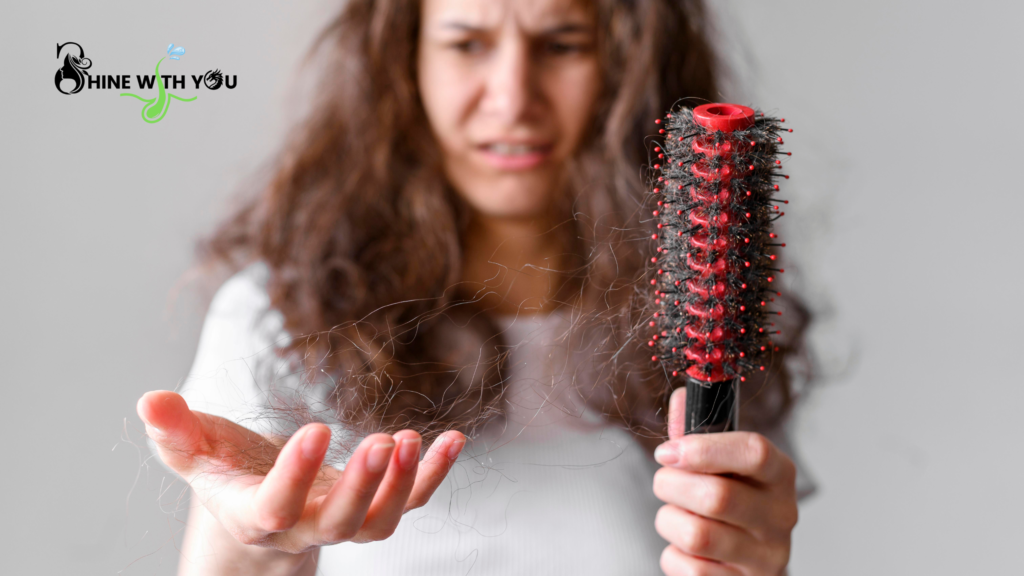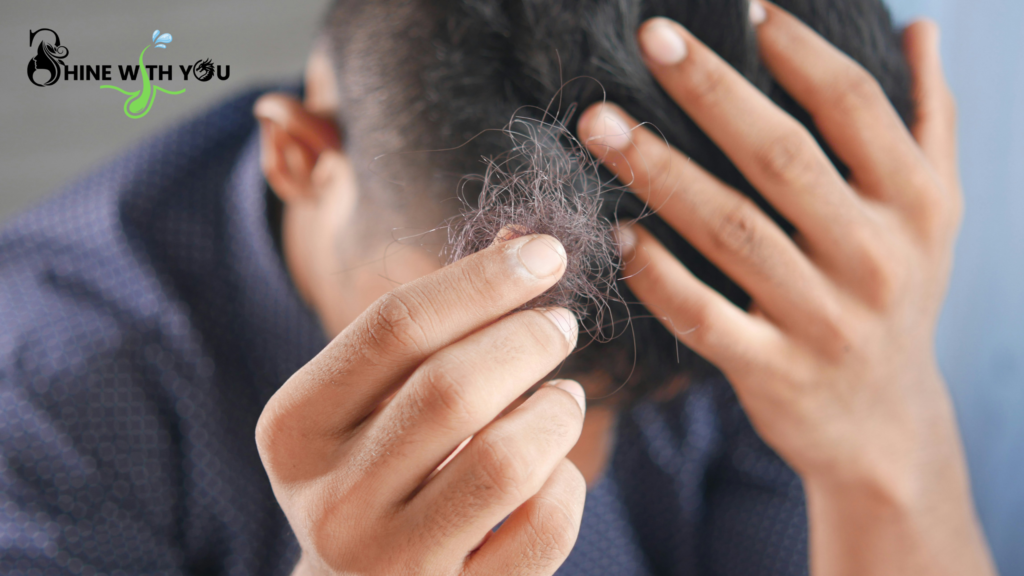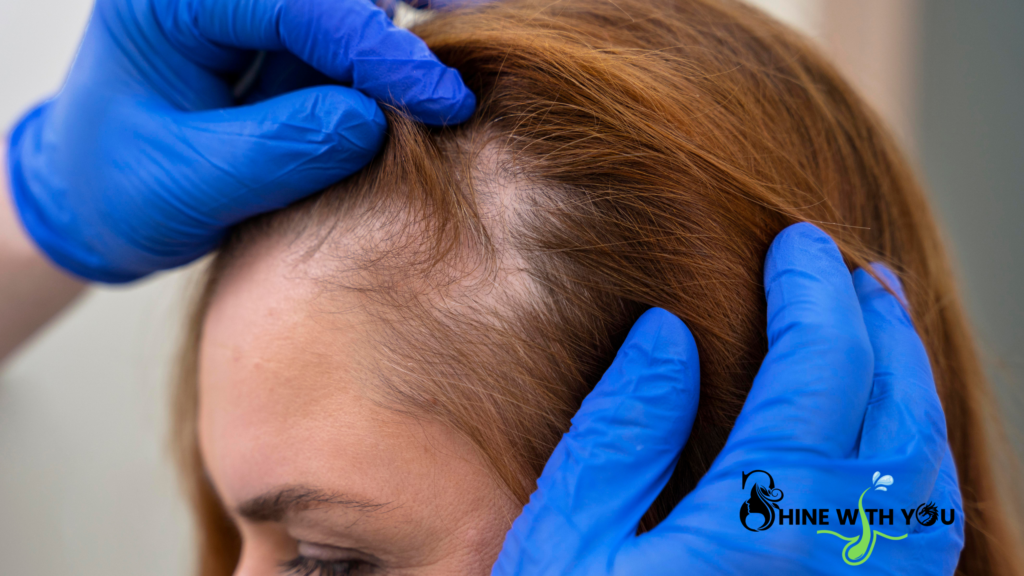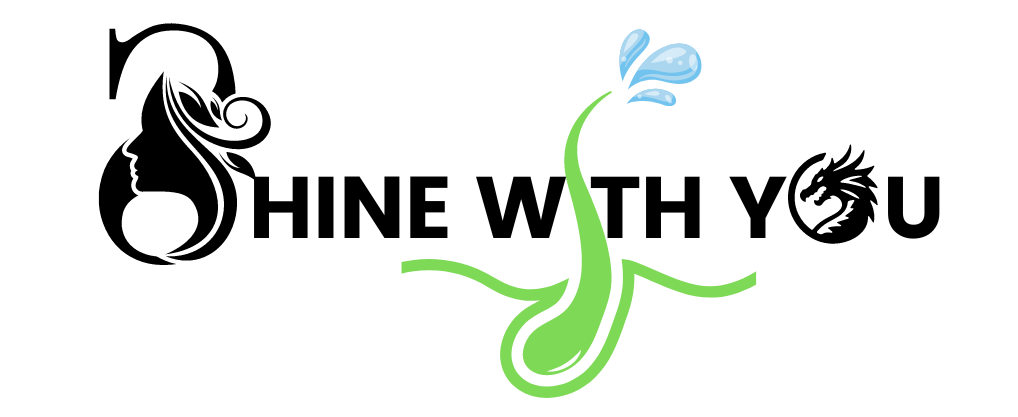hair&care- Hair is one of the biggest parts of our beauty. We all want to have a full head of thick, black, beautiful hair. None of us want to let this Hair Fall . Hair is a defining feature of human appearance and plays an important role in our self-perception and cultural identity. Each strand of hair is primarily made up of a protein called keratin, which also forms the structural foundation of our skin and nails. Hair grows from follicles located in the dermis layer of the skin. Hair health and vitality can be affected by a variety of factors, including genetics, hormonal changes, diet, stress levels, and hair care practices. A balanced diet rich in vitamins and minerals, such as biotin, vitamins A, C, D, E, and zinc, supports healthy hair growth.
Today, we will discuss solutions to some important frequently asked questions about hair loss-prevention of hair loss and hair&care.

Related topics: Fall Hair: Reduce In Natural Ways
How To Stop Hair Fall ?
hair&care: People often seek ways to prevent hair fall, which can include using specialized shampoos and conditioners, ensuring a balanced diet, reducing stress, and avoiding excessive heat styling and harsh chemical treatments.
Stopping hair fall can be achieved through a combination of lifestyle changes, proper hair care routines, and medical interventions if necessary. Here are some effective strategies:
1. Diet and Nutrition
• Balanced Diet: Ensure your diet includes plenty of vitamins and minerals essential for hair health, such as Vitamin A, Vitamin E, Vitamin D, iron, and zinc.
• Protein Intake: Hair is primarily made of protein, so include adequate amounts of protein in your diet from sources like eggs, fish, and beans.
2. Hair Care Routine
• Gentle Washing: Use a mild shampoo and conditioner suitable for your hair type. Avoid washing your hair with hot water as it can strip the scalp of natural oils.
• Avoid Heat and Chemicals: Limit the use of heat styling tools and harsh chemical treatments, which can weaken hair and lead to breakage.
• Scalp Massages: Regular scalp massages with oils like coconut or rosemary oil can improve blood circulation and promote hair growth.
3. Lifestyle Changes
• Stress Management: High stress levels can lead to hair loss. Engage in stress-reducing activities like yoga, meditation, or regular exercise.
• Adequate Sleep: Ensure you get enough sleep as it is crucial for overall health, including hair health.
4. Medical Treatments and Supplements for Hair Fall
• Minoxidil: Over-the-counter topical treatments like minoxidil can help to stimulate hair growth and slow down hair loss.
• Finasteride: Prescription medications like finasteride can be effective for male pattern baldness.
• Vitamins and Supplements: Consider taking supplements like biotin, omega-3 fatty acids, and multivitamins after consulting with a healthcare provider.
5. Natural Remedies for Hair Fall
• Aloe Vera: Aloe vera is a popular natural remedy for hair care due to its nourishing and soothing properties. Rich in vitamins, minerals, and amino acids, aloe vera can help promote healthy hair growth and improve the overall condition of the scalp. When applied to the scalp, aloe vera’s anti-inflammatory and antimicrobial properties can alleviate dandruff and soothe irritation, creating a healthier environment for hair growth. It also acts as a natural conditioner, moisturizing the hair and reducing frizz, resulting in softer, shinier locks. To use aloe vera for hair care, apply pure aloe vera gel directly to the scalp and hair, leave it on for about 30 minutes, and then rinse thoroughly with a mild shampoo. Regular use of aloe vera can help strengthen hair, prevent breakage, and maintain a healthy scalp, contributing to stronger, more resilient hair.
• Onion Juice: Onion juice is a well-known natural remedy for promoting hair growth and improving overall hair health. Rich in sulfur, which is essential for the production of collagen and keratin, onion juice can help strengthen hair strands and encourage new hair growth. Additionally, its antimicrobial properties help keep the scalp healthy by preventing infections that can lead to hair loss. To use onion juice, extract the juice from fresh onions and apply it directly to the scalp, massaging gently to ensure it reaches the hair roots. Leave it on for at least 30 minutes before washing it off with a mild shampoo to remove the pungent smell. Regular application of onion juice can lead to thicker, healthier hair, reduce hair fall, and even add a natural shine to your locks. While the smell might be strong, many find the benefits of using onion juice for hair growth well worth the effort.
6. Professional Advice
Dermatologist Consultation: If hair fall persists despite trying home remedies and lifestyle changes, it is advisable to consult a dermatologist to identify underlying health issues.
7. Hair Products
Choose the Right Products: Use shampoos and conditioners that are free of sulfates and parabens. Look for products specifically designed to strengthen hair and reduce hair fall.
What Causes Hair Fall ?
hair&care: Common causes of hair fall include genetics, hormonal imbalances, nutritional deficiencies, stress, certain medications, and underlying health conditions such as thyroid disorders or autoimmune diseases.
Hair fall can be caused by a variety of factors, which can be broadly categorized into genetic, hormonal, medical, and lifestyle-related causes. Here are some of the main reasons:
1. Genetic Factors Cause Hair Fall
Androgenetic Alopecia: This is the most common cause of hair loss, known as male-pattern baldness and female-pattern baldness. It is hereditary and can be passed down from either parent.
2. Hormonal Changes Cause Hair Fall
• Pregnancy and Childbirth: Many women experience hair loss due to hormonal changes during and after pregnancy.
• Menopause: Hormonal imbalances during menopause can also lead to hair thinning and loss.
• Thyroid Issues: Both hypothyroidism and hyperthyroidism can cause hair loss.
3. Medical Conditions
• Alopecia Areata: An autoimmune condition that causes patchy hair loss on the scalp and other areas of the body.
• Scalp Infections: Fungal infections like ringworm can invade the hair and scalp, leading to hair loss.
• Chronic Illnesses: Diseases such as diabetes and lupus can cause hair loss as a side effect.
4. Medications and Treatments
• Chemotherapy: Cancer treatments can lead to significant hair loss.
• Medications: Drugs used for arthritis, depression, heart problems, and high blood pressure can cause hair loss as a side effect.
5. Nutritional Deficiencies
• Iron Deficiency: Lack of iron can lead to anemia, which is a common cause of hair loss.
• Vitamin Deficiencies: Deficiencies in vitamins like B12, D, and biotin can affect hair health.
6. Physical or Emotional Stress Cause Hair Fall
Telogen Effluvium: This condition can be triggered by significant physical or emotional stress, causing a large number of hair follicles to enter the resting phase and fall out.
7. Hair Care Practices
• Overstyling: Frequent use of heat styling tools, tight hairstyles, and harsh chemical treatments can damage hair and lead to breakage and hair loss.
• Poor Hair Care: Lack of proper hair care routines, such as infrequent washing or not using conditioners, can weaken hair.
8. Aging Cause Hair Fall
• As people age, the rate of hair growth slows down, and hair strands become smaller and have less pigment, leading to thinning hair and hair loss.
Understanding the underlying cause of hair loss is essential for determining the appropriate treatment or lifestyle changes needed to mitigate the issue. If hair loss is severe or persistent, consulting a healthcare provider or dermatologist is recommended.

How To Grow Hair Faster ?
hair&care: To promote faster hair growth, maintaining a healthy diet rich in vitamins and minerals, regular scalp massages, avoiding heat damage, and using hair growth products can be effective.
Growing hair faster involves a combination of good hair care practices, a healthy diet, and lifestyle changes. Here are some effective strategies:
1. Healthy Diet
• Protein-Rich Foods: Hair is primarily made of keratin, a protein. Include eggs, fish, lean meats, beans, and nuts in your diet to ensure sufficient protein intake.
• Vitamins and Minerals: Vitamins such as A, C, D, and E, as well as minerals like zinc and iron, are crucial for hair health. Leafy greens, fruits, nuts, and seeds are good sources.
• Biotin and Omega-3 Fatty Acids: These nutrients promote hair growth and can be found in foods like salmon, avocados, and sweet potatoes.
2. Hair Care Practices
• Gentle Handling: Avoid harsh brushing and minimize the use of tight hairstyles that can pull on the hair.
• Regular Trimming: Trim your hair every 6-8 weeks to remove split ends and prevent breakage, which helps maintain healthy growth.
• Avoid Heat and Chemical Damage: Limit the use of heat styling tools and chemical treatments. When using heat, apply a heat protectant spray.
• Use Mild Shampoo and Conditioner: Choose products that suit your hair type and avoid those with harsh chemicals like sulfates and parabens.
3. Scalp Care
• Scalp Massages: Regular scalp massages can enhance blood circulation, promoting stronger hair roots. Scalp massages with oils like coconut oil, castor oil, or rosemary oil can stimulate blood flow to the scalp, promoting hair growth.
• Keep the Scalp Clean: A clean scalp ensures that hair follicles are not blocked by dirt or oil, which can hinder hair growth.
4. Lifestyle Changes
• Reduce Stress: High stress levels can lead to hair loss. Practices like yoga, meditation, and regular exercise can help reduce stress.
• Adequate Sleep: Getting 6-8 hours of sleep per night is essential for overall health, including hair health.
5. Supplements
• Biotin Supplements: Biotin supplements are widely used to support hair health and promote hair growth. Biotin, also known as vitamin B7, is essential for the production of keratin, a protein that makes up the structure of hair. Adequate biotin levels can help strengthen hair, reduce breakage, and improve overall hair texture and shine. Many people take biotin supplements to address hair thinning or hair loss, often noticing improvements in hair thickness and growth over time. While biotin is naturally found in foods like eggs, nuts, and leafy greens, supplements can provide a concentrated dose that may be beneficial for those with deficiencies or specific hair concerns. However, it’s important to consult with a healthcare provider before starting biotin supplements, as individual needs can vary and excessive intake may lead to adverse effects. Regular use of biotin supplements, combined with a balanced diet and proper hair care, can contribute to healthier, more resilient hair.
• Other Supplements: In addition to biotin, several other supplements can support hair health and promote growth. Omega-3 fatty acids, found in fish oil supplements, help nourish hair follicles, reduce inflammation, and add shine to the hair. Vitamin D is crucial for hair follicle cycling, and a deficiency can lead to hair thinning, making vitamin D supplements beneficial for overall hair health. Iron supplements are essential for individuals with iron-deficiency anemia, as low iron levels can cause hair loss. Zinc plays a role in hair tissue growth and repair, and its supplementation can help maintain the oil glands around the follicles. Vitamin E, an antioxidant, promotes a healthy scalp environment, while vitamin C aids in collagen production, essential for strong hair. Additionally, a well-balanced multivitamin can ensure you get a comprehensive range of nutrients vital for hair health. As with any supplement, it’s important to consult with a healthcare professional to tailor the regimen to your specific needs and avoid potential interactions or side effects.
6. Professional Treatments
• Minoxidil: Minoxidil is a widely-used topical treatment for hair loss, particularly effective for androgenetic alopecia (male and female pattern baldness). It works by stimulating hair follicles and increasing blood flow to the scalp, which promotes hair growth and slows down hair loss. Applied directly to the scalp, minoxidil can help thicken existing hair and encourage the growth of new hair over several months of consistent use. Available in various strengths and formulations, such as solutions or foams, it’s typically applied twice daily. While minoxidil can be effective, results may vary, and it often requires ongoing use to maintain hair growth. Some users may experience side effects like scalp irritation or unwanted facial hair growth. It’s advisable to consult with a healthcare professional before starting minoxidil to ensure it’s appropriate for your specific condition and to understand the potential risks and benefits.
• Consult a Dermatologist: If hair growth is significantly slow or if there is excessive hair loss, consulting a dermatologist can help identify underlying issues and provide appropriate treatments.
By combining these strategies, you can promote faster and healthier hair growth. For specific product recommendations and tailored advice, consulting with a healthcare provider or a professional hair stylist is beneficial.
Which Vitamins Are Good For Hair Fall ?
hair&care: Vitamins such as biotin (Vitamin B7), Vitamin D, Vitamin E, and Vitamin A, along with minerals like iron and zinc, are often recommended to support healthy hair growth and reduce hair loss.
Several vitamins are known to be beneficial for preventing hair loss and promoting healthy hair growth. Here are some key vitamins that are particularly important:
1. Vitamin ‘A’
• Function: Vitamin A helps produce sebum, an oily substance that moisturizes the scalp and keeps hair healthy.
• Sources: Sweet potatoes, carrots, spinach, and kale.
2. Vitamin ‘B7’ (Biotin)
• Function: Biotin is essential for the production of keratin, the protein that makes up hair, skin, and nails.
• Sources: Eggs, nuts, seeds, and sweet potatoes.
• Research: Studies have shown that biotin deficiency can lead to hair thinning and loss.
3. Vitamin ‘C’
• Function: Vitamin C is an antioxidant that helps protect hair from oxidative stress and aids in the production of collagen, a protein that strengthens hair.
• Sources: Citrus fruits, strawberries, bell peppers, and broccoli.
4. Vitamin ‘D’
• Function: Vitamin D is believed to play a role in the creation of new hair follicles, which are the tiny pores in the scalp where new hair can grow.
• Sources: Fatty fish, fortified dairy products, and sunlight exposure.
• Research: Studies have linked vitamin D deficiency to alopecia, a condition that causes hair loss.
5. Vitamin ‘E’
• Function: Vitamin E is an antioxidant that helps reduce oxidative stress and boost hair growth.
• Sources: Nuts, seeds, spinach, and broccoli.
6. Iron
• Function: Iron helps red blood cells carry oxygen to your cells, including hair follicles. Iron deficiency can lead to anemia, which is a major cause of hair loss.
• Sources: Red meat, lentils, spinach, and fortified cereals.
7. Zinc
• Function: Zinc plays an important role in hair tissue growth and repair. It also helps keep the oil glands around the follicles working properly.
• Sources: Oysters, beef, spinach, and pumpkin seeds.
8. Omega-3 Fatty Acids
• Function: Although not a vitamin, omega-3 fatty acids are essential fats that your body cannot make on its own. They help keep your scalp and hair hydrated.
• Sources: Fatty fish, flaxseeds, chia seeds, and walnuts.
Summary
Incorporating these vitamins and minerals into your diet can help maintain healthy hair and reduce hair loss. If you suspect a deficiency, consulting with a healthcare provider for appropriate tests and supplementation is advisable. A balanced diet combined with proper hair care can make a significant difference in hair health.
Is Hair Fall Normal ?
hair&care: Yes, hair fall is normal to a certain extent. On average, it is normal to lose about 50 to 100 hairs a day. This is a natural part of the hair growth cycle, which includes phases of growth (anagen), rest (telogen), and shedding (exogen).
Understanding Normal Hair Fall
1. Hair Growth Cycle:
• Anagen Phase: The growth phase where hair actively grows. This phase can last between 2 to 6 years.
• Catagen Phase: A short transitional phase that lasts about 2 weeks.
• Telogen Phase: The resting phase which lasts about 3 months. At the end of this phase, hair naturally falls out, and the follicle then returns to the anagen phase to start a new hair.
2. Daily Shedding:
• It is common to shed 50 to 100 hairs daily as part of the normal hair growth cycle. This shedding can be more noticeable when washing or brushing hair.
When Hair Fall May Be A Concern
hair&care: Hair fall can be considered abnormal if it leads to noticeable thinning or bald patches. Several conditions can cause excessive hair loss:
1. Telogen Effluvium:
A condition where more hair than usual enters the telogen phase, often due to stress, illness, or hormonal changes.
2. Androgenetic Alopecia:
Also known as male or female pattern baldness, this is a genetic condition that causes hair to thin and fall out in specific patterns.
3. Medical Conditions:
Conditions such as thyroid disorders, autoimmune diseases, and scalp infections can lead to significant hair loss.
4. Nutritional Deficiencies:
Deficiencies in vitamins and minerals such as iron, zinc, and biotin can contribute to hair loss.
5. Medications:
Medications can cause hair loss as a side effect by disrupting the normal hair growth cycle. This type of hair loss, known as drug-induced alopecia, often occurs because certain medications interfere with the hair follicles’ ability to produce new hair. For example, chemotherapy drugs target rapidly dividing cells, including hair follicles, leading to significant hair loss. Other medications, such as beta-blockers, anticoagulants, and antidepressants, can cause a condition called telogen effluvium, where hair follicles enter the resting phase prematurely, resulting in increased shedding and noticeable thinning. Hormonal treatments, like birth control pills or hormone replacement therapy, can also alter hair growth patterns by affecting hormonal balance. While drug-induced hair loss is usually temporary and resolves once the medication is discontinued, it can be distressing. It’s important to discuss any concerns with a healthcare provider, who may be able to adjust the dosage or switch to an alternative medication to minimize hair loss.
When to Seek Help
hair&care: If you notice excessive hair shedding, thinning, or bald patches, it is advisable to consult a healthcare provider or dermatologist. They can help determine the underlying cause and recommend appropriate treatments.
While it is normal to lose some hair daily as part of the hair growth cycle, excessive hair fall may indicate an underlying issue that requires attention. Maintaining a healthy diet, proper hair care practices, and managing stress can help keep hair loss within normal limits.

How To Reduce Hair Fall Naturally?
hair&care: Natural remedies to reduce hair fall include using aloe vera, coconut oil, onion juice, and maintaining a balanced diet rich in proteins and vitamins.
Reducing hair fall naturally involves a combination of dietary changes, proper hair care routines, lifestyle adjustments, and the use of natural remedies. Here are some effective strategies:
1. Diet and Nutrition for Reduce Hair Fall
• Balanced Diet: A balanced diet is crucial for naturally reducing hair loss and promoting healthy hair growth. Consuming a variety of nutrient-rich foods ensures your hair receives essential vitamins and minerals. Protein, found in lean meats, fish, eggs, and legumes, is fundamental for hair structure, as hair is primarily made of keratin, a type of protein. Iron-rich foods like spinach, lentils, and red meat support oxygen delivery to hair follicles, preventing hair loss caused by anemia. Omega-3 fatty acids, present in fatty fish, flaxseeds, and walnuts, nourish hair follicles and add shine. Vitamins A and C, found in fruits and vegetables, promote sebum production and collagen formation, respectively, which are vital for hair health. Biotin and zinc, available in nuts, seeds, and whole grains, strengthen hair and support growth. By maintaining a well-rounded diet rich in these nutrients, you can naturally reduce hair loss and enhance the strength and vitality of your hair.
• Protein Intake: Hair is made of protein, so including adequate protein in your diet is crucial. Good sources include eggs, dairy products, legumes, and nuts.
2. Scalp Care
• Regular Scalp Massages: Massaging the scalp with oils such as coconut oil, castor oil, or rosemary oil can improve blood circulation and promote hair growth.
• Aloe Vera: Applying aloe vera to the scalp can soothe it, reduce dandruff, and unblock hair follicles.
3. Natural Remedies
• Onion Juice: Rich in sulfur, onion juice can boost collagen production and enhance hair growth. Apply it to the scalp for 30 minutes before rinsing.
• Green Tea: Rinsing hair with green tea can help prevent hair loss due to its antioxidants and properties that inhibit the hormone responsible for hair loss.
4. Hair Care Practices for Reduce Hair Fall
• Gentle Hair Washing: Use mild shampoos without sulfates and parabens. Avoid washing hair with hot water as it can strip the scalp of natural oils.
• Avoid Heat and Chemicals: Avoiding excessive heat and harsh chemicals is essential for preventing hair loss and maintaining healthy hair. Heat styling tools, such as blow dryers, curling irons, and straighteners, can damage the hair shaft, leading to breakage and thinning. The high temperatures weaken the protein structure of hair, making it brittle and prone to split ends. Similarly, chemical treatments like coloring, perming, and relaxing alter the hair’s natural structure, often resulting in weakened, damaged hair that is more susceptible to falling out. To protect your hair, minimize the use of heat styling tools and opt for air-drying whenever possible. If you must use heat, apply a heat protectant spray to reduce damage. For chemical treatments, seek professional services that use milder formulations and incorporate regular deep conditioning treatments to maintain hair strength and elasticity. By reducing the use of heat and chemicals, you can preserve your hair’s integrity and minimize hair loss.
• Proper Drying: Proper drying techniques are crucial for maintaining healthy hair and preventing damage that can lead to hair loss. After washing your hair, gently blot it with a soft towel instead of vigorously rubbing, which can cause breakage and frizz. Using a microfiber towel or an old T-shirt can further reduce friction and absorb moisture more effectively. If you prefer air-drying, gently detangle your hair with a wide-tooth comb while it’s still damp to prevent knots and breakage. When using a blow dryer, always apply a heat protectant spray to shield your hair from heat damage. Use the blow dryer on the lowest heat setting and keep it at a safe distance from your hair, moving it continuously to avoid concentrating heat on one spot. Alternatively, consider using a diffuser attachment to distribute heat more evenly and reduce the risk of damage. By following these proper drying methods, you can help maintain your hair’s strength and health, reducing the likelihood of hair loss.
5. Lifestyle Changes for Reduce Hair Fall
• Reduce Stress: High stress levels can lead to hair loss. Engage in stress-relieving activities like yoga, meditation, or regular exercise.
• Adequate Sleep: Ensure you get 6-8 hours of sleep per night, as poor sleep can contribute to hair loss.
6. Hydration
Drink Plenty of Water: Staying hydrated is crucial for maintaining healthy hair. Aim for at least 8-10 glasses of water a day.
7. Supplements for Reduce Hair Fall
Biotin and Omega-3 Fatty Acids: Taking supplements like biotin (Vitamin B7) and omega-3 fatty acids can support hair health. Always consult with a healthcare provider before starting any supplements.
By incorporating these natural methods into your routine, you can help reduce hair fall and promote healthier hair growth. If hair loss persists, it is advisable to consult a healthcare professional to rule out underlying conditions.
Join our community! Subscribe to receive updates on [shinewithyou.com]. Don’t forget to share your thoughts and ideas in the comments section below each post. Your feedback will motivate me to provide more new hair and skin care solutions, remedies, and tips Thank you.

4 thoughts on “Hair&care: Causes | Prevent & Most Important FAQs”